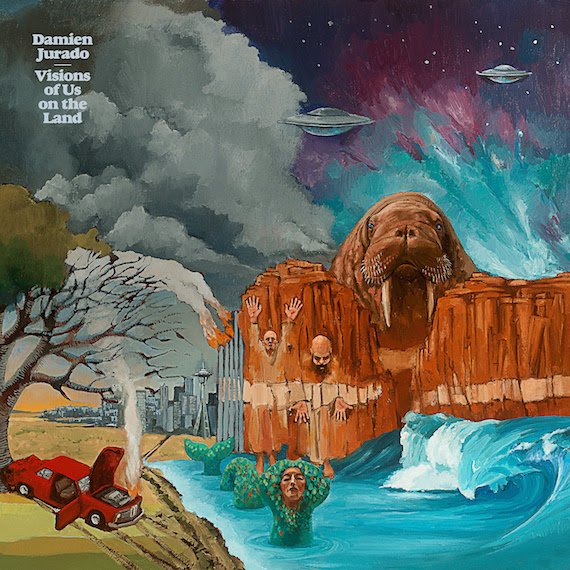Damien Jurado (Noah)
I didn’t get Damien Jurado until he started partnering with Richard Swift. My brother had tried to force him on me when I was growing up, but songs like Medication and Ghost of David just felt like the mournful bitching of another Seattle white-dude. Richard Swift on the other hand, another prolific singer/songwriter, got to me right off the bat. He played with the notion of a singular human being pumping out music, infusing his tracks with 60s garage and poppy allusions to psychedelia. It was everything I thought I wanted. Until Swift started producing Jurado. Under Swift’s able hand, Jurado is no longer just a white guy who looks exactly like Moe from Calvin and Hobbes strumming a guitar and struggling with his life. Richard Swift has deftly thickened Jurado’s sonic landscape, giving it greater variety (mournful psych-folk is how I think of it) while allowing space for Jurado’s beautiful, blue-collar twang to soar. If you haven’t listened (on repeat, very loudly) to Maraqopa (the very best of the collabos) or Brothers and Sisters of the Eternal Son, you’re missing out on the very best evolution of Damien Jurado, at once bigger, thicker, more epic, but still infused with the soulful pining of a man clearly dealing with some issues.
His newest album, the third in what he refers to as his “Maraqopa Trilogy”, Visions of Us on the Land is out March 18 and you owe it to yourself to dig in and dig deep.
Qachina, the second single off the album, is a dusty, cacti-soaked bit of tumbleweed-folk rock. A new direction to be sure, but one that the duo (I think we can call them that now) ably stroll down.


